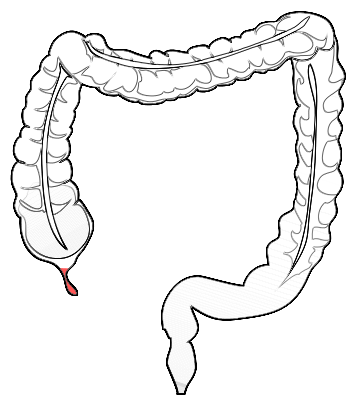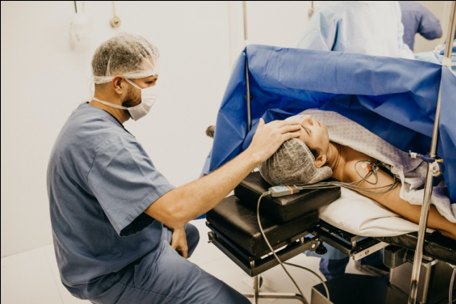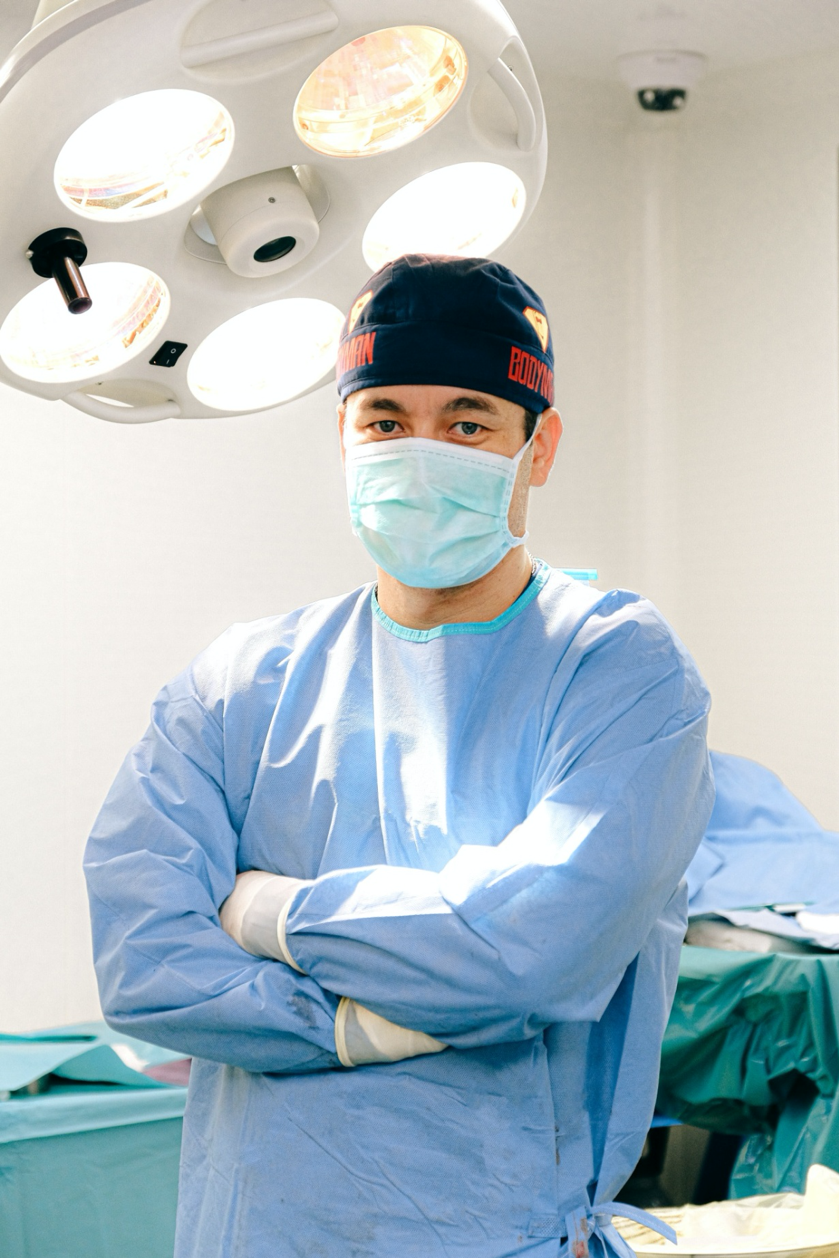CALL TODAY 646-846-1136 | EMAIL
Surgical Experts Dedicated to Improving Lives
At Lenox Hill Surgeons, our dedicated team of nyc surgeons and medical professionals provide compassionate care with the highest ethical & professional standards. In our state of the art facility, we offer surgical services using only the most cutting edge and current procedures and treatments.We specialize in general surgery, including extensive experience in performing hernia repair surgery. Our expertise is in minimally invasive surgery and robotic surgery. Minimally invasive and robotic surgery often allow patients to experience easier recovery than traditional open surgery. They also allow for more precise and less traumatic surgery. When robotic and minimally invasive surgery is not an option, we are also skilled and experienced in traditional open surgical procedures.
All of our doctors are experienced and skilled surgeons having undergone extensive training in school, residency and fellowships. They all practice medicine with ethical behavior, compassion and superb bedside manner. In the operating room they all exhibit precise mechanical abilities, analytical thinking and the ability to visualize tissue in three dimensions. These innate and learned skills allow our surgeons to be some of the most dexterous and skilled professionals in all of New York City and the Country.
Call us: 646-846-1136
About The Surgeons
PATIENT TESTIMONIALS
Recent Awards
We are honored and deeply appreciative to have consistently received prestigious awards and recognition year after year, establishing us as one of New York’s foremost hospitals for a wide range of general surgeries, safety measures, specialized procedures, and overall excellence in healthcare. At Lenox Hill Surgeons, our unwavering commitment lies in delivering exceptional care and unwavering support to our patients, guaranteeing their safety and successful recovery throughout their entire surgical experience.
Hospital Quality Awards
 America’s 50 Best Hospitals Award™ (2023, 2022)
America’s 50 Best Hospitals Award™ (2023, 2022)
Top 1% in the nation for providing the highest clinical quality year over year.

America’s 100 Best Hospitals Award™ (2021)
Top 2% in the nation for consistently delivering clinical quality year over year.

America’s 250 Best Hospitals Award™ (2023, 2022, 2021)
Top 5% in the nation for consistently delivering clinical quality.

Patient Safety Excellence Award™ (2023, 2022)
Top in the nation for providing excellence in patient safety by preventing infections, medical errors, and other preventable complications.
Specialty Clinical Quality Awards

America’s 100 Best Hospitals for Cardiac Care Award™ (2023, 2022, 2021, 2020, 2019)
Superior clinical outcomes in heart bypass surgery, coronary interventional procedures, heart attack treatment, heart failure treatment, and heart valve surgery.

America’s 100 Best Hospitals for Coronary Intervention Award™ (2023, 2022, 2021, 2020, 2019)
Superior clinical outcomes in coronary intervention procedures (angioplasty with stent).

America’s 100 Best Hospitals for Prostate Surgery Award™ (2023, 2022, 2021)
Superior clinical outcomes in prostate removal surgery and transurethral resection of the prostate.
Click to see all of our Healthgrades best doctors awards


Visit our main website at www.LenoxHillSurgeons.com
Blog Posts are Below:
Category Archives: Colon Surgery
Colon Surgery: Exploring Procedures for Colon Conditions
In this article, we will explore different procedures for colon conditions and their importance in restoring health and well-being. The colon, also known as the large intestine, plays a vital role in the digestive process. However, various conditions can affect the colon, such as colon cancer, diverticulitis, and inflammatory bowel disease. When conservative treatments fail to provide relief or manage these conditions effectively, colon surgery may be necessary. At Lenox Hill Surgeons, a leading general surgery practice in New York City, our team of expert surgeons specializes in a range of colon surgeries.

Procedures for Colon Conditions
1. Colectomy: Removing Diseased Portions of the Colon
Colectomy is a common surgical procedure that involves the removal of diseased portions of the colon. It is often performed to treat conditions such as colon cancer, ulcerative colitis, or Crohn’s disease. During a colectomy, the surgeon carefully removes the affected segment of the colon and reconnects the remaining healthy portions. In some cases, a temporary or permanent colostomy may be necessary to redirect waste through an opening in the abdominal wall.
2. Colostomy: Creating an Opening in the Abdominal Wall
Colostomy is a surgical procedure in which an opening is created in the abdominal wall, allowing waste to bypass the lower part of the colon and exit the body. It is typically performed when the lower part of the colon or rectum is removed or bypassed, as in cases of rectal cancer or severe inflammatory bowel disease. A colostomy may be temporary or permanent, depending on the specific condition and treatment plan. It requires the use of a colostomy bag to collect waste, which can be emptied or replaced as needed.
3. Robotic-Assisted Colon Surgery: Precision and Enhanced Recovery
Robotic-assisted colon surgery is an advanced minimally invasive technique that utilizes robotic technology to assist the surgeon during the procedure. It offers several advantages, including enhanced precision, improved visualization, and smaller incisions. The robotic system allows for greater dexterity and maneuverability, facilitating intricate surgical tasks with greater accuracy. Patients who undergo robotic-assisted colon surgery often experience faster recovery, reduced pain, and a shorter hospital stay compared to traditional open surgery.
4. Laparoscopic Colon Surgery: Minimally Invasive Approach
Laparoscopic colon surgery, also known as keyhole surgery, is a minimally invasive procedure that utilizes small incisions and specialized surgical instruments. The surgeon inserts a laparoscope, a thin tube with a camera, through one of the incisions to visualize the surgical area. Additional instruments are inserted through the other small incisions to perform the surgery. Laparoscopic colon surgery offers several benefits, including reduced post-operative pain, shorter recovery time, and minimal scarring.
Expert General Surgical Services at Lenox Hill Surgeons
At Lenox Hill Surgeons, we understand the importance of personalized care and expertise when it comes to colon surgery. Our team of experienced general surgeons is committed to providing exceptional surgical services, utilizing advanced techniques and innovative technology. We prioritize patient well-being, ensuring comprehensive evaluations, tailored treatment plans, and compassionate care throughout the surgical journey.
Contact us today to schedule a consultation with our renowned surgeons:
Contact Information:
LENOX HILL SURGEONS
155 East 76th Street
Suite 1C
New York, NY 10021
646-846-1136
lenoxhillsurgeons@gmail.com
Visit our website for more information: https://lenoxhillsurgeons.com/
Resection of Colon
The resection of the colon becomes necessary if you have infections and other problems in your large intestine. If your doctor suggests you to undergo this surgery, you need to do it as early as possible because the infected part can lead to other severe issues in your body.

Your doctor will encourage you to get up and walk the day after surgery. You can also go back to your regular activities after one or two weeks, such as showering, walking upstairs, and driving, but you need to avoid intensive activities for some weeks. Moreover, take an appointment after two weeks of your surgery for a follow-up checkup. If you face any troubles like pain and soreness around the incision, then consult your doctor immediately.
What Is A Colon?
The large intestine, also called a colon, is present in the lower part of the digestive tract. It is a long organ that includes the small intestine, large intestine (colon), and the rectum (concluding part of the colon).
When you swallow your delicious meal, it begins its journey by getting into the stomach for digestion and then into your small intestine, which absorbs the nutrition in your food. The remaining (waste) of the food travels through the colon to the rectum, and then your body removes it. The colon and rectum hold the waste and absorbs water until you expel it.
What Is A Colostomy?
A resection of the colon is also known as a colostomy. This surgery aims to remove the affected part of your colon. The colon is also known as the large bowel or large intestine.
During this surgery, your surgeon cuts the affected section of your colon and then reconnects the other healthy parts. Your surgeon can also suggest you remove the entire colon or some parts of it.
If you don’t have any healthy intestine left, your surgeon can perform a colostomy. During the colon’s resection, the doctor moves one end of the colon to the outside of the abdomen wall. Then, your surgeon attaches the abdomen with the colostomy bag. So that when feces pass through your large intestine, it gathers into the bag. The stool that reaches to the bag is usually liquid or soft.
The method of colostomy is not permanent. The patient has the bag until the intestines heal entirely. By performing another surgery, the surgeon can take out the colostomy. However, in some cases, the doctor does not remove the bag, and the colostomy is permanent.
Why Do You Need Resection of Colon?
The resection of the colon becomes necessary to treat the problems like:
- Infection
- Colon cancer
- Intestinal clogs caused by tumors or scar tissues
- Diverticulitis, large bowel disease
- Bleeding In the intestine
- Precancerous polyps
- Volvulus, an abnormal position of the intestine
- Ulcerative colitis, an intestine infection
- Intussusception – occurs when one part of the intestine slips into the other part.
The Procedure of Colon Resection
Before the surgery, you will get anesthesia, which will help you to remain asleep throughout the surgery. You will also not feel any pain during the process. Your surgeon will choose between open colostomy or laparoscopic.
During the laparoscopic colostomy, the surgeon inserts a thin camera into the intestine to get clear images. This method involves multiple small incisions. The laparoscopic colostomy is less invasive compare to open surgery.
On the other hand, an open colostomy takes place by making a single large incision in your belly to see the colon directly.
The basics of both surgeries are the same. Your surgeon will access the intestine by making one or more incision and removes the damaged or diseased colon. Next, the doctor will sew the remaining parts of the colon together. This step is known as anastomosis. If needed, your surgeon will also do the procedure of colostomy. Then, they will close the incision opening by stitching. In some cases, the surgeon also removes other organs.
Bottom Line
The resection of the colon can be complicated sometimes; if the patients wait too much time to go through surgery. You must get the affected part of the large intestine removed immediately so that the other parts can perform their function. Moreover, it is painful, and a patient can have soreness near their belly.
Your doctor will recommend the perfect time to undergo surgery and also suggest whether open colostomy or laparoscopic colostomy is better for you. After the surgery, there are little chances of any side effects and complications, and if you feel any problem, consult your doctor.
If you are looking for the best surgeons in NYC, Lenox Hills Surgeons is the right place. With the most advanced technology and techniques, our expert surgeons have years of experience in providing compassionate care and surgical precision. Book an appointment or call us at 646-846-1136.
Colon Surgery for Diverticulitis
Diverticulitis occurs when diverticula become inflamed. Diverticula are small patches present in the digestive tract. The inflammation of diverticula may be due to any infection. Diverticula are usually located in your colon, which is the largest portion of your large intestine. They are mostly harmless to your digestive system. However, after inflammation, these patches can disrupt your life due to pain and other symptoms. To learn more about Diverticulitis and Colon surgery, you should read this article completely.
When Should You Have Diverticulitis Surgery?
You may have diverticulitis if the patches in your colon are inflamed. Here are some causes and symptoms of diverticulitis:
- Stomach cramps
- Constipation
- Diarrhea
- Stomach Pain
- Painful infections
Many people suffering from diverticulitis may not need surgery to recover. You can treat this condition with probiotics, fiber, and antibiotics. When you don’t see any reduction in symptoms, the doctor may recommend removing the infected part of the colon through surgery.
Surgery is only necessary when all the other treatments of diverticulitis fail, or on the other hand when a hole in the colon doesn’t react to alternative treatments.
If you are having an attack of acute diverticulitis, you need to be hospitalized. You may also receive pain medication or fluids intravenously before going for a surgery.
Diverticulitis surgery is a risky procedure. According to the American Society of Colon and Rectal Surgeons (ASCRS), it is recommended that surgeons perform this surgery in the following conditions:
- Peritonitis is when the colon is ruptured and causing leaks to the abdomen or develops severe inflammation; this requires emergency surgery.
- When the swelling does not subside or becomes infected after draining
- When the symptoms are serious, and all the other treatments, such as antibiotics do not work.

(Source)
Types of Diverticulitis Surgery
There are two types of major surgery for diverticulitis:
1. Bowel Resection (Primary Anastomosis)
The surgeon removes infected parts of the colon in this procedure, called a colectomy, and sews the cut ends together. After both the healthy pieces are joined, the surgery is over.
2. Bowel Resection (Colostomy)
In this procedure, a colectomy is performed by the surgeon connecting your bowel with an opening present inside your abdomen (colostomy). The opening is known as a stoma. If you are suffering from excessive inflammation, your surgeon will perform a colostomy. A colostomy may be permanent or temporary, depending on how well you can recover in the next few months.
Each of the above surgery may take place by laparoscopically or by open surgery:
· Open Surgery
Your surgeon will make a six to eight-inch incision on your abdomen and view the intestinal area.
· Laparoscopic
Your surgeon will only make small cuts. He will then place small cameras or instruments in your body with the help of small tubes (trocars), which measure less than a centimeter.
Get Ready for Your Surgery
You doctor may ask you to take the following measures two weeks before surgery:
- Do not take medication that reduces the thickness of your blood, such as aspirin or ibuprofen (Advil).
- If you are a smoker, do not smoke for a while, or if you are ready, quit smoking permanently. It is difficult for your body to recover from surgery when you are smoking.
- Wait for any existing cold, fever, or flu to break.
- You should replace your diet with liquids and take laxatives so that your bowels get empty.
When there are 24 hours to your surgery, you need to:
- Only drink water and any other clear liquid, such as juice or broth.
- Do not eat anything for up to 12 hours before the surgery.
- If your doctor suggests any medication, take it before surgery.
After the surgery, you should take some time off from your work or from any other responsibilities so that you may recover. Two weeks are enough for you to rest at home or in the hospital.

(Source)
Process of Colon Surgery
In order to perform colon surgery for diverticulitis, your surgeon will:
- Cut three to five little openings in the region of your abdomen (for laparoscopy) or make a six to eight-inch opening to inspect your intestine and other organs (for open surgery).
- Insert a laparoscope and other tools for surgery through the cuts (for laparoscopy).
- Fill your stomach region with gas to make more room for the colon surgery (for laparoscopy).
- Look at your organs to ensure there aren’t any other problems.
- Find the part of your colon that is affected, cut it from the remaining part of your colon, and take it out.
- Sew back the two parts of your colon together (primary anastomosis) or open a gap in your midsection or abdomen and join the colon to the gap (colostomy).
- Sew up your entry points and clean the regions around them.
Conclusion
If you are feeling inflammation or pain in the colon region, kindly visit our clinic or contact us today.
LENOX HILL SURGEONS
646-846-1136
lenoxhillsurgeons@gmail.com
Laparoscopic Colon Resection
What Is Laparoscopic Colon Resection? The human digestive system comprises organs that help break down the food, absorb nutrients, and excrete waste material from the body. When you eat something, the food travels from the mouth to the stomach through the esophagus.
The food then enters the small intestine where it is absorbed, and the un-dissolved nutrients move into the large intestine (colon). The colon stores the waste until it is removed through rectum or anus. The large intestine is vital to the digestive system, and adverse effects of a medical condition may require you to go through surgical intervention.
What Is Laparoscopic Colon Resection?
Essentially, Colectomy or colon resection is a surgical technique to treat the diseases affecting your colon, such as colon cancer. During the surgery, the doctor removes the cancerous part of the colon. Depending upon the severity, the surgeon may perform
- Total colectomy – removing the colon completely
- Partial Colectomy – removing a part of the colon affected by cancer
- Hemi-colectomy – removing the left or right half of the colon.
- Proctocolectomy – removing both the colon and rectum
After the removal of the cancerous portion, the surgeon sews the healthy ends of the colon to leave enough space for the waste to leave the body. However, if the surgeon has cut the colon completely, then he/she may perform a colostomy.
Conditions That Colectomy Treats
A patient may undergo a colon resection for various medical conditions associated with the large intestine. For instance, you may need surgery for colon cancer, polyps, inflammatory bowel diseases, obstruction in the intestine, bleeding, and other problems.
- Intestinal Blockage: Obstruction in the colon calls for urgent medical help. The surgeon may perform a total or partial colectomy to clear the colon.
- Colon Cancer: Colon cancer affects more than 100,000 US citizens each year. However, proper screening may help prevent cancer. For the newly developed cancer, the surgeon may remove a part of the colon. On the other hand, for advanced-stage cancer, the doctor is likely to remove a bigger portion of the intestine.
- Excessive Bleeding: To treat uncontrolled bleeding, the surgeon may perform partial colectomy.
- Diverticulitis: In the case of complex diverticulitis, the surgeon may remove the affected area of the colon.
Preparation for the Surgery
Colon resection is a major surgical procedure, and it is better to take some preventive measure before the surgery day.
- Talk to your doctor and avoid the medicines that may complicate the surgical procedure.
- For certain colon resections, your doctor may ask you to keep fast hours before the surgery.
- In some situations, the surgeon may prescribe antibiotics to evade a possible infection.
- Your colon has to be empty before the surgery. And for this purpose, the surgeon may give you an oral solution to drink hours before the surgery.
The Surgical Procedures
Your surgeon may perform the surgery in either of the following ways:
Open Colectomy
During the traditional open surgery, the surgeon makes a large cut in the abdomen to access the colon. With the help of the surgical tools, the doctor then removes the affected tissues surrounding the colon. He/she may go for total or partial colectomy.
Laparoscopic colectomy
The minimally invasive technique, also called laparoscopic colectomy, involves several tiny incisions in the abdomen. The surgeon may mark as many as 4 to 5 cuts and insert a laparoscope through one of them.
The real-time video helps the surgeon monitor the patient’s internal organs. With a surgical tool, the doctor takes out the colon from the body and removes the affected part. After the removal, the surgeon places the colon back in the abdomen through an incision.
Final Thoughts
Laparoscopic colon resection does not cause pain or discomfort, and the patient recovers faster as compared to open colectomy. If your colon is affected and requires a colon resection, Lenox Hill Surgeons is the right place in NYC. Our dedicated and skilled surgeons have expertise in minimally invasive surgeries, and we provide quality healthcare. Contact us today and book an appointment with the best surgeons in town.
LENOX HILL SURGEONS
155 East 76th Street
Suite 1C
New York, NY 10021
What to Expect from Laparoscopic Colon Resection Surgery
Colon surgeries account for more than 600,000 of the surgical procedures performed every year in the United States with colon surgery being used to treat a wide spectrum of diseases, including cancer, polyps, inflammatory bowel diseases; mainly Chron’s and ulcerative colitis. Colectomies or surgeries on the colon used to be invasive and have extensive recuperation periods. Now, however, we can use laparoscopic techniques to make surgeries much less invasive and much less painful.
What Is a Laparoscopic Colon Resection?
 Laparoscopic surgery is part of a technique known as minimally invasive surgery. The goal of such procedures is to minimize the patient’s suffering and ensure that they inflict the smallest wound possible on the patient when accessing the diseased part of the colon.
Laparoscopic surgery is part of a technique known as minimally invasive surgery. The goal of such procedures is to minimize the patient’s suffering and ensure that they inflict the smallest wound possible on the patient when accessing the diseased part of the colon.
Most of the colonic laparoscopies that are performed are of a type known as keyhole surgery; instruments are fed through a small number of openings, each incision measuring about a quarter of an inch. By using a fiber optic camera, surgeons can project an image of the patient’s colon on to a monitor to guide them.
What Are the Advantages of Laparoscopic Surgery?
 Laparoscopic colon resection surgery NYC uses just a small incision in the body to feed instruments through, often guided by fiber optic cameras. Results may vary, depending on the extent of the surgery and the skill of the individual surgeon, but in general, laparoscopic surgery has many advantages over conventional methods.
Laparoscopic colon resection surgery NYC uses just a small incision in the body to feed instruments through, often guided by fiber optic cameras. Results may vary, depending on the extent of the surgery and the skill of the individual surgeon, but in general, laparoscopic surgery has many advantages over conventional methods.
There is less postoperative pain with laparoscopic surgery owing to the smaller wounds required. Consequently, patients have a much shorter recuperation period and thus require less hospital resources throughout the course of their treatment. Because there is much less damage to the surrounding area for most operations, patients can return to a solid-food diet much sooner than they would otherwise be able to. This also speeds up the return of the patient’s normal bowel functioning. Laparoscopic surgery also involves a much smaller wound than usual, so there is less cosmetic damage and scarring.
 Is Laparoscopic Surgery Suitable for Me?
Is Laparoscopic Surgery Suitable for Me?
Laparoscopic surgery has very wide-ranging applications and is used in a number of very different bowel diseases. For patients that are suitable for laparoscopic surgery, the experience is much easier. However, it is not appropriate for everyone.
To find out if you are suitable for colon surgery, visit our colon resection surgery NYC clinic to arrange a consultation.



















